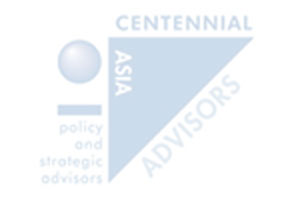Asian Insights
A summary of “Asian Insights” weekly update is published here. The full version is available through paid subscription. Please click here to register your interest. Our executive will get in touch with you.

What has changed – highlights from the Centennial summary table
- Global economy: Federal Reserve Chair Powell’s speech at Jackson Hole has two main implications for Asian economies. First, by clarifying how the Fed will act on tapering and rate hikes, he reduced the risk of an abrupt liquidity shock in emerging markets. Second, while tapering may constrain Asian central banks’ leeway for monetary actions, the signal that rate hikes in the US are some distance away has bought Asian policy makers more time to address vulnerabilities and more space to conduct monetary policy.
- Asian economies: Two policy developments in China are noteworthy: First, the regulatory crackdowns have continued, even extending to online fan clubs. Private businesses will become warier of state intervention as a result and may hold back on investment. Second, a modest loosening of monetary policy is likely. India’s sub-par monsoon raises downside risks to growth. Indonesia’s risk profile may have worsened a tad with the central bank’s decision to extend debt monetisation by another year. South Korea’s rate hike is likely to be followed by a second increase soon.
- Asian political risks: The Philippines is likely to see a feisty presidential election next year, with many political heavyweights eyeing a run. Our base case remains for President Duterte’s daughter, Sara to run with his close ally Senator Bong Go as her running mate.
Malaysia: Upside possible in the near term
- Two factors point to upside possibilities. First, there are signs that the current wave of covid infections is waning, allowing the economy to revive. Second, the new government is likely to enjoy a honeymoon, allowing the 2022 budget and 12th Malaysian Plan to be passed.
- Beyond this immediate uptick in prospects, though, the outlook is less clear. A general election appears likely in early 2022 but the political combinations that are likely to emerge may lead to continued erosion of institutions and long term political troubles.
Singapore chooses to play it safe with key policy address
- There had been hopes of substantial policy moves in the run-up to Prime Minister Lee Hsien Loong’s National Day Rally speech. Lee did offer several new initiatives but they fell short of our hopes for decisive moves to transform the economy.
- Lee noted that, having brought the pandemic under control and achieved one of the most impressive vaccination programmes in the world, his government would shift the emphasis of policy from pandemic control to re-opening the economy. However, the model for further economic development he outlined was similar to what Singapore has pursued for decades.
- Similarly, the initiatives he announced to assist low wage earners were incremental rather than transformative. Existing schemes, for government to supplement low-wage workers’ earnings and to raise wages through skills training and productivity gains will be expanded. A nudge would be given to wages through a government-mandated floor to wages paid to Singaporeans by firms seeking to employ foreign workers. On our calculations, while many Singaporeans will see improved earnings, the net benefit to the lower-income groups will be relatively small.

Highlights from the CAA Weekly Table:
Asian political risks: two potential flashpoints
- Even with a tiny parliamentary majority and a fractious coalition, Malaysia’s new prime minister Ismail Sabry could, with the right policies, eventually contain the pandemic and revive the economy. This will enable him to lead his alliance to victory in early general elections, likely sometime early next year. Whether that gives Malaysia long term political stability, however, is moot.
- Thailand, suffering from a renewed anti-government protests and a raging pandemic, is approaching a turning point. There are rumours of a coup, either to oust Prime Minister Prayuth or one carried by Prayuth himself to replace the elected government with a technocratic one that need not answer to troublesome political parties.
Asian economic prospects:
- China’s President Xi is seeking a substantial redefinition of its political economy. Instead of dressing up a capitalistic economy with enough socialism to make things look ideologically proper, Xi seems to want to revive the Communist Party’s original mission: the defence of the downtrodden who were the peasants in the past but now include lower income urban workers and the rural poor. Expect many unsettling policy turns as a result.
- External conditions are helping the region. Strong exports are supporting Indonesian growth while keeping its current account deficit low. The Philippines, on the other hand, has been helped by revived growth in foreign worker remittances.
Impact of shifting composition of global demand on Asia
- The outlook for Asian exports hinges upon two questions: is the current growth of global goods spending sustainable? And, how would the shift in composition of global demand shifts from goods to services impact Asia?
- We see the pace of global goods trade decelerating as the recovery in the developed economies matures and spending shifts back to services from goods. However, our analysis shows that tech-related goods spending is likely to remain above-trend.
- The net impact will be slower growth in demand for Asian exports. But, the continued strength in demand for tech goods will support the crop of Asian economies that are deeply integrated in regional tech supply chains and which serve final demand generated by advanced economy goods spending e.g., China, Malaysia, Philippines, Vietnam. Singapore.
Indonesia’s 2002 Budget: Ambitious consolidation plans hinge on growth
- President Joko Widodo’s 2022 budget proposal focused on stability. He promised an early return to the previous budget deficit cap. The planned budget will be slightly contractionary in its impact on demand and its assumptions and planned spending are conservative.
- But the budget plan also showed up deep weaknesses in Indonesia’s fiscal position. Its tax to GDP ratio fell to a record-low of 8.3% in 2020 and is set to remain low.
- More positively, hints were dropped of a broadening reform agenda that goes beyond just infrastructure and human capital development to include fiscal reforms.
